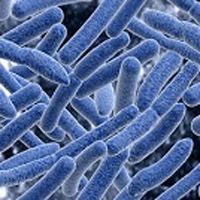Study Finds Gut Microbacteria Influences Obesity and Liver Disease
Gut microbial makeup could be at fault for obesity and diabetes because of the liver’s fat processing methods, according to a study published in Cell Metabolism.

Gut microbial makeup could be at fault for obesity and diabetes because of the liver’s fat processing methods, according to a study published in Cell Metabolism.
Researchers from Penn State tested the popular misconception that plant derived dietary fiber contains zero calories to demonstrate how an increase in fiber could affect a typical diet. Some studies from the National Institutes of Health recommended that Americans should add more fiber to their diets to improve some aspects of health, but the researchers found otherwise.
The researchers said that gut microbiota ferment the plant derived fibers unable to be digested in human and mice stomachs and release them as short chain fatty acids like acetic acid, which are full of energy. As such, when these acids reach the liver, they can convert to lipids and add to fat reserves, the researchers explained.
These contributions can lead to metabolic syndrome, and is especially noted in humans and mice that lack toll like receptor 5 (TLR5) — a bacterial flagellin receptor that maintains the balance of the gut microbiome.
Approximately 10% of the human population has a TLR5 mutation, causing a complete functional breakdown. Those people have weaker immune systems, which can increase the risk of developing metabolic syndrome.
“Our present study suggests that bacterial fermentation of dietary fiber and the production of short chain fatty acids contribute to deposition of fat in the liver,” Vijay-Kumar continued in the statement, commenting that if these processes are disrupted or left unregulated in patients with excess gut bacteria linked to intestinal and liver disorders, the results could be detrimental.
Sometimes, for short periods of time, short chain fatty acids may be helpful for overall gut microbiome health, but not for extended time frames.
The researchers determined that unregulated bacterial fermentation, short chain fatty acids, and increased liver lipids combined to lead to liver damage. Consuming more than the advised amounts of dietary fiber had adverse effects in mice models, especially combined with TLR5 dysfunction and unchecked gut microbial overgrowth.
“Most of the observations describing the beneficial effects of short-chain fatty acids in metabolic disorders are from short term studies and primarily from healthy subjects and experimental animals,” added Vishal Singh, postdoctoral fellow in nutritional sciences at Penn State. “Our next goal is to analyze the long term effects of short chain fatty acids, specifically in experimental models of type 2 diabetes and/ or metabolic syndrome. We envision that our studies would drive the field towards ‘personalized’ cautioned dietary intake of plant-derived fiber in immunocompromised individuals.”